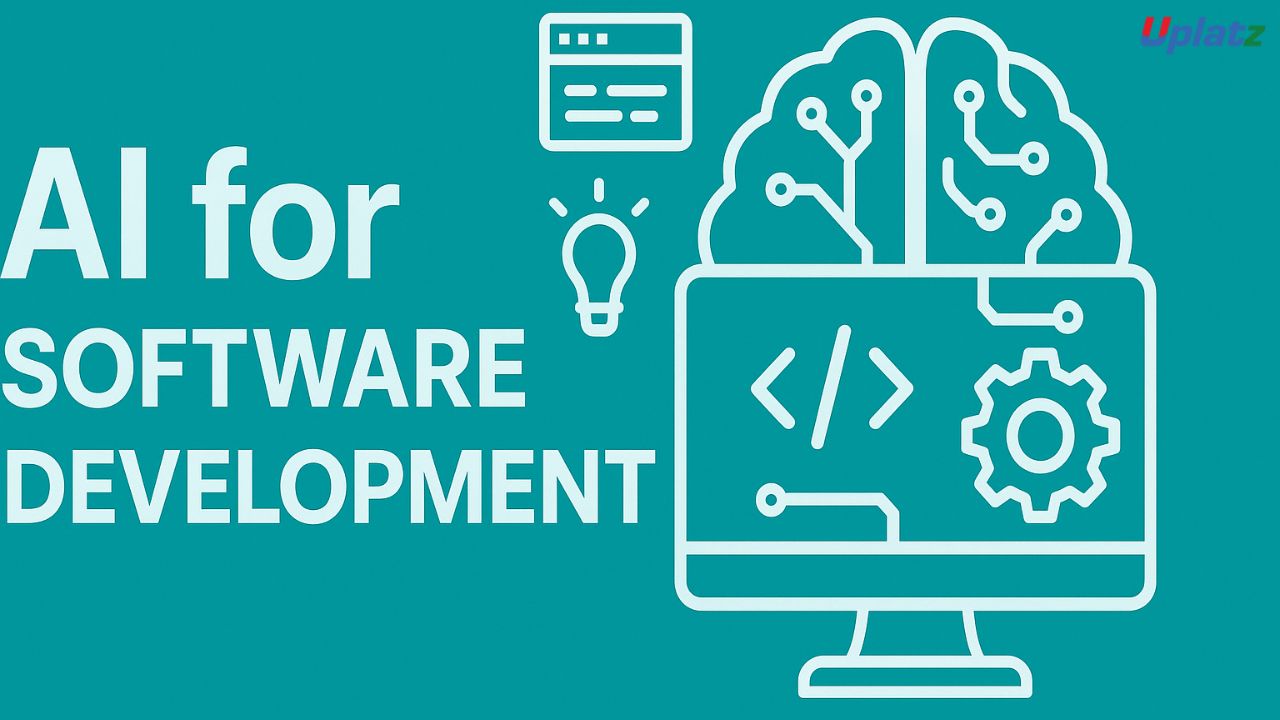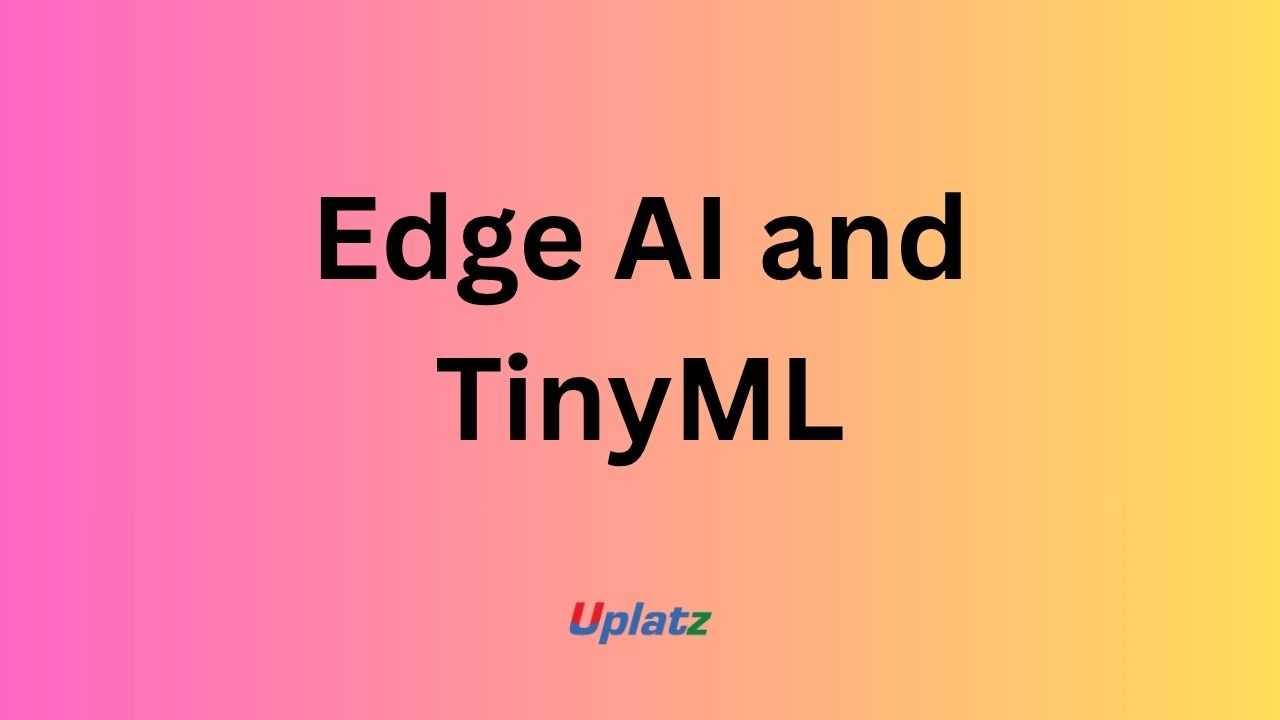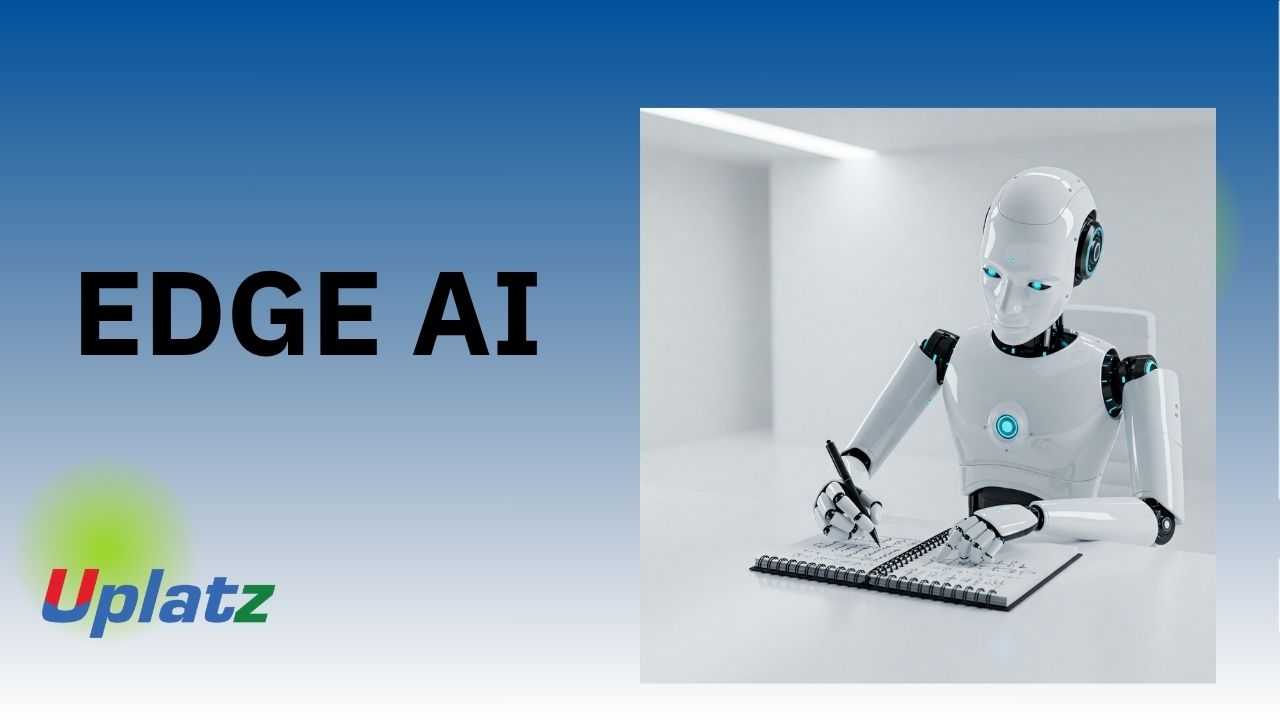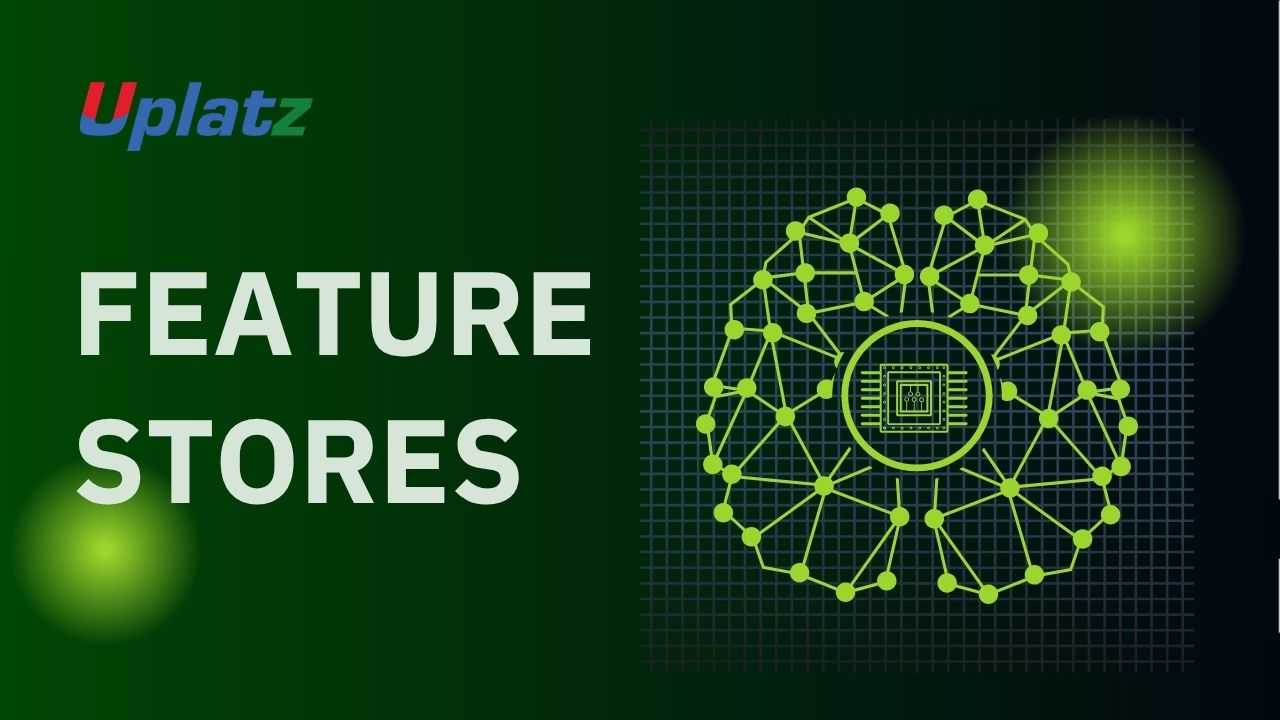AI for Software Development
Leverage Artificial Intelligence to Automate, Accelerate, and Enhance the Software Development Lifecycle Price Match Guarantee
Full Lifetime Access
Access on any Device
Technical Support
Secure Checkout
Course Completion Certificate
Price Match Guarantee
Full Lifetime Access
Access on any Device
Technical Support
Secure Checkout
Course Completion Certificate
 97% Started a new career
BUY THIS COURSE (
97% Started a new career
BUY THIS COURSE (GBP 12 GBP 29 )-
 86% Got a pay increase and promotion
86% Got a pay increase and promotion
Students also bought -
-

- Edge AI and TinyML
- 10 Hours
- GBP 12
- 10 Learners
-

- Edge AI: Building Intelligent Systems at the Edge
- 10 Hours
- GBP 12
- 10 Learners
-

- EdgeDB
- 10 Hours
- GBP 12
- 10 Learners

Artificial Intelligence is revolutionising how modern software is built. From intelligent code assistants to fully automated testing systems, AI is reshaping the Software Development Lifecycle (SDLC) and transforming the role of developers. The AI for Software Development course by Uplatz gives you a complete, practical understanding of how to integrate AI tools, models, and automation frameworks into every phase of software creation — from planning and coding to testing, deployment, monitoring, and maintenance.
This course empowers learners to use AI as a collaborative programming partner, enabling faster development, fewer bugs, greater stability, and higher-quality code across projects of any size.
🔍 What Is AI for Software Development?
AI for Software Development refers to the use of machine learning, large language models (LLMs), and intelligent automation to streamline and enhance the work of software engineers. Instead of writing every line of code manually or debugging complex errors alone, developers can now rely on AI-powered systems that:
-
Generate code snippets or entire functions
-
Suggest architecture patterns
-
Improve code readability and documentation
-
Predict bugs and vulnerabilities
-
Automate repetitive testing processes
-
Analyse large codebases for quality improvements
This shift has been powered by tools such as GitHub Copilot, OpenAI Codex, Tabnine, Hugging Face Transformers, DeepCode, SonarQube ML models, and custom LLM integrations through APIs.
AI doesn’t replace developers — it enhances their capabilities by providing intelligent insights, reducing cognitive load, and enabling focus on higher-level design and problem-solving.
⚙️ How AI Transforms the Software Development Lifecycle (SDLC)
AI improves efficiency and quality at every stage of development:
1. Planning & Requirements
-
AI analyses project goals and suggests technical architectures
-
Predicts resource needs and development timelines
-
Detects potential risks or design inconsistencies early
2. Coding & Implementation
-
Generate high-quality code from natural language prompts
-
Convert pseudo-code or documentation into working scripts
-
Suggest performance optimisation and refactoring strategies
-
Provide context-aware autocompletion within IDEs
3. Debugging & Code Quality
-
ML-driven static analysis identifies vulnerabilities
-
Code review systems automatically detect inconsistent styles
-
AI predicts potential bugs based on historical commit patterns
-
Recommends patches and secure coding practices
4. Testing & QA Automation
-
Automated test generation for unit, integration, and regression tests
-
AI prioritises test execution based on risk and criticality
-
Detects flaky tests and unstable code segments automatically
5. Deployment & CI/CD
-
Intelligent CI/CD pipelines reduce build time and optimise steps
-
AI-driven failure prediction supports safer deployments
-
Automatic rollback logic triggered by anomaly detection
6. Maintenance & Monitoring
-
AI analyses logs for anomaly detection
-
Predicts performance degradation before failures occur
-
Identifies technical debt and areas needing refactoring
This end-to-end integration of AI into the SDLC leads to faster releases, higher quality, and increased developer productivity.
🏭 Industry Applications of AI in Software Engineering
AI-driven development is becoming the standard across major industries and technology companies. Organisations such as Microsoft, Amazon, Google, Meta, IBM, Oracle, Netflix, and Uber have already embedded AI throughout their development pipelines.
Real-world use cases include:
1. Intelligent Code Assistants
AI models help engineers generate secure, production-ready code faster.
2. AI-Powered Security Analysis
ML models detect vulnerabilities such as SQL injection, insecure dependencies, and potential exploit paths.
3. Automated Testing at Scale
Companies use AI to generate tests dynamically and reduce manual QA efforts.
4. Predictive DevOps & CI/CD
DevOps teams rely on AI to predict which builds will fail, optimise pipeline steps, and improve reliability.
5. Large-Scale Refactoring
AI tools scan millions of lines of code to identify dead code, high-risk modules, and refactoring opportunities.
6. Natural-Language System Queries
Engineers can ask an AI model questions like:
“Show me where this bug originates” or “How does this feature work?”
7. Documentation Automation
AI automatically keeps documentation up to date as codebases evolve.
As the software engineering world continues adopting AI-first approaches, developers with AI-integrated skillsets are highly sought after.
🌟 Benefits of Learning AI for Software Development
Learning how to integrate AI into software engineering provides significant advantages:
-
Boost Productivity: Write more code in less time with fewer errors.
-
Improve Software Quality: Use ML-based analysis to strengthen security and reliability.
-
Automate Routine Tasks: Reduce manual testing, debugging, and documentation.
-
Enhance Decision-Making: AI provides insights into architecture, design patterns, and risks.
-
Stay Future-Ready: The next generation of developers must know how to work with AI-driven tools.
-
Increase Career Opportunities: AI-assisted developers are in high demand across industries.
📘 What You’ll Learn in This Course
This course teaches you how to use AI practically in real development environments. You’ll learn:
-
Fundamentals of AI & ML through the lens of software engineering
-
Natural-language-to-code generation using LLMs
-
Coding with AI assistance in IDEs (VS Code, JetBrains, Codespaces)
-
Using OpenAI Codex, Transformers, and LLM APIs
-
ML-driven bug prediction and static analysis
-
Automated test generation and smart QA pipelines
-
Optimised CI/CD using predictive analytics
-
AI-assisted code review and refactoring
-
Building a full AI-enabled development workflow
Each module includes hands-on examples, practical exercises, and real-world use cases.
🧠 How to Use This Course Effectively
Follow this structure to maximise your learning experience:
-
Start with the AI fundamentals deeply connected to software engineering.
-
Integrate AI assistants into your preferred coding environment.
-
Practice using LLM APIs to automate repetitive tasks.
-
Use AI models to analyse and improve code quality.
-
Automate test generation and QA workflows.
-
Build AI-powered DevOps and CI/CD pipelines.
-
Complete the capstone project to build a real-world AI-assisted SDLC workflow.
This approach ensures practical, career-ready skills.
👩💻 Who Should Take This Course
Perfect for:
-
Software Developers
-
Full-Stack Engineers
-
DevOps & MLOps Engineers
-
QA Testers and Automation Engineers
-
Data Scientists transitioning into applied AI
-
CS Students and new developers
-
Technical team leads adopting AI in workflows
Only basic programming knowledge is required.
🚀 Final Takeaway
Artificial Intelligence is redefining how software is built, tested, and maintained. The AI for Software Development course by Uplatz equips you with the tools and practical workflows to build faster, cleaner, and more intelligent software using AI assistants and ML-driven automation.
By the end of this course, you’ll have the skills to design AI-assisted SDLC pipelines that enhance productivity, reduce bugs, and drive smarter engineering decisions.
-
Understand the role of AI in software engineering and DevOps.
-
Use AI tools for code generation, completion, and refactoring.
-
Apply machine learning for bug prediction and code quality analysis.
-
Automate software testing and release management with AI.
-
Integrate AI pair-programming tools into development workflows.
-
Leverage NLP models to translate natural language into executable code.
-
Implement AI-based static and dynamic code analysis.
-
Enhance developer productivity through AI-driven insights.
-
Understand ethical and safety considerations in AI-assisted development.
-
Prepare for careers combining AI and software engineering expertise.
Course Syllabus
Module 1: Introduction to AI in Software Engineering
Module 2: AI-Driven Development Tools and Frameworks
Module 3: Code Generation using LLMs and Codex
Module 4: Machine Learning for Bug and Vulnerability Prediction
Module 5: Automated Testing and QA with AI Models
Module 6: AI in Continuous Integration and Deployment (CI/CD)
Module 7: NLP for Code Documentation and Translation
Module 8: Software Maintenance and Predictive Analytics
Module 9: Ethics and Responsible AI in Software Development
Module 10: Capstone Project – Build an AI-Powered Development Workflow
Upon successful completion, learners receive a Certificate of Completion from Uplatz, validating their expertise in AI for Software Development. This Uplatz certification recognises proficiency in integrating artificial intelligence tools into development environments to automate code generation, testing, and deployment.
The certification aligns with industry demands for AI-augmented software engineers and DevOps professionals. It is ideal for programmers, software architects, and tech leads who want to stay ahead in an era where coding and machine intelligence converge.
Holding this credential demonstrates your ability to build, test, and maintain smarter software systems — faster, safer, and more intelligently.
As AI continues to redefine engineering productivity, developers skilled in AI-enhanced programming are among the most in-demand professionals. Completing this course from Uplatz prepares you for roles such as:
-
AI-Assisted Software Engineer
-
Machine Learning Developer
-
DevOps Automation Engineer
-
AI Tool Integration Specialist
-
AI Product Engineer
Professionals in this field typically earn between $100,000 and $180,000 per year, depending on role and experience.
Career opportunities span across tech companies, startups, and AI-driven software consultancies focusing on automation, analytics, and intelligent application design. The course provides the technical expertise to build scalable, intelligent pipelines that redefine the modern software lifecycle — blending creativity with computational intelligence.
-
What is AI for Software Development?
It’s the application of AI techniques to automate and enhance software design, coding, testing, and deployment. -
How does AI improve code quality?
By detecting bugs, suggesting optimisations, and automating reviews through ML-based models. -
What tools use AI for code generation?
GitHub Copilot, OpenAI Codex, Tabnine, and Replit Ghostwriter. -
How can NLP assist developers?
It converts natural-language instructions into structured, executable code. -
What is predictive code analysis?
Using ML to predict potential errors or vulnerabilities before runtime. -
What are the benefits of AI-driven testing?
Faster regression cycles, reduced manual effort, and higher accuracy. -
What are common ML algorithms used in software analytics?
Random Forests, Gradient Boosting, and Neural Networks for bug prediction. -
What is AI-assisted DevOps?
The use of AI to automate build, deployment, and monitoring pipelines. -
What ethical issues arise from AI-generated code?
Copyright, data privacy, and accountability for algorithmic errors. -
How can developers prepare for an AI-augmented future?
By learning AI fundamentals, using automation tools, and combining ML with traditional programming.









